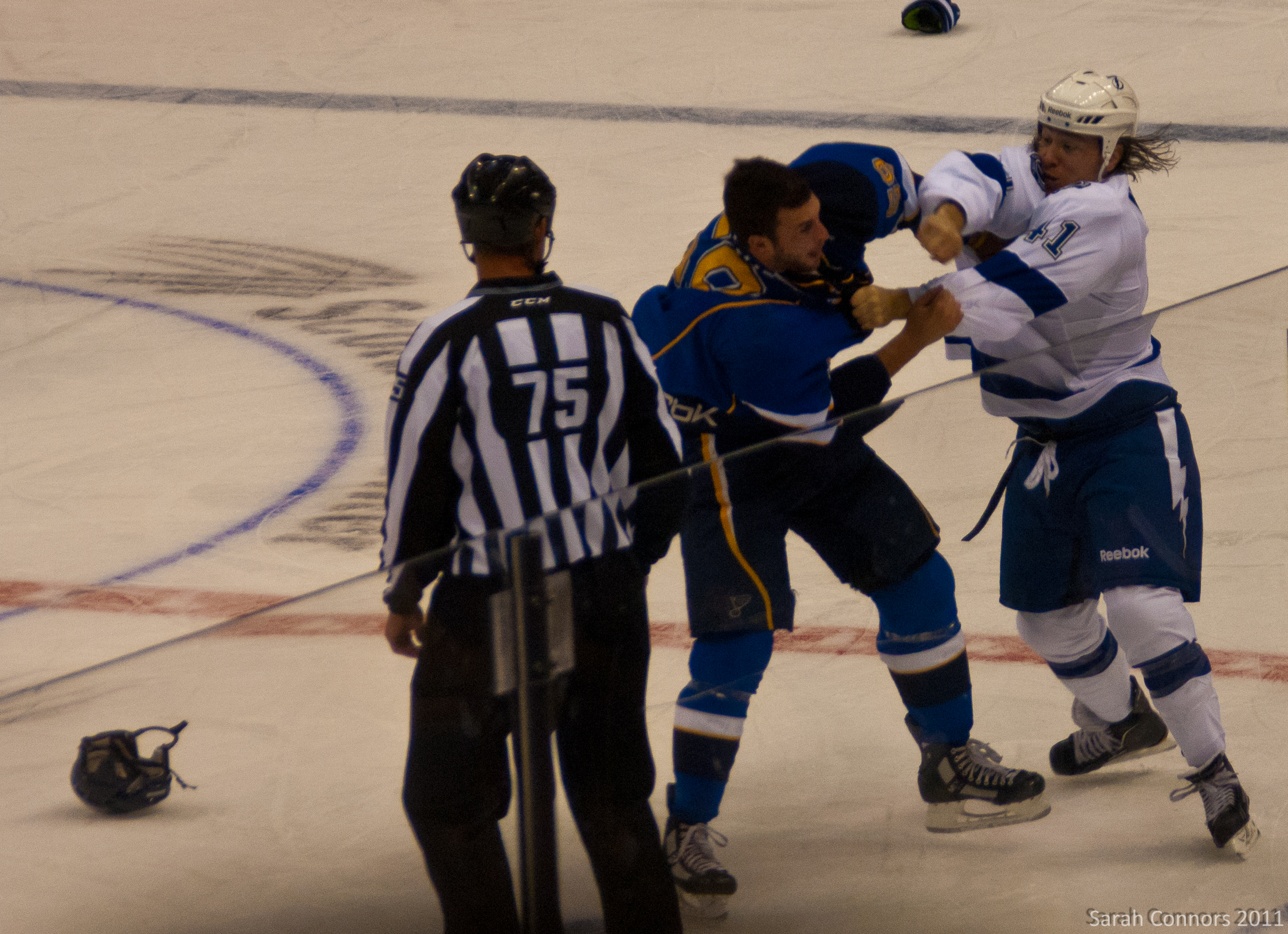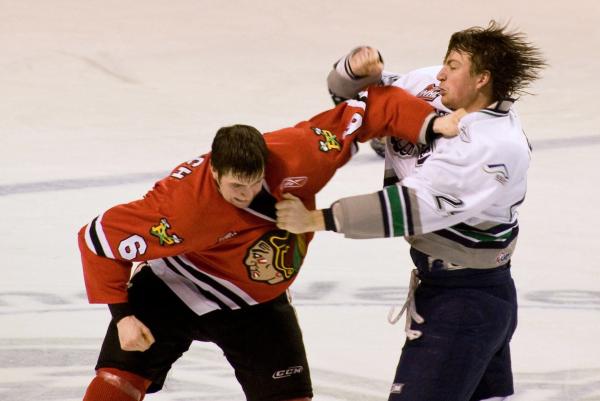Dead at 53.
Another former professional athlete from the National Hockey League.
Another player subject to collisions, head trauma, on-ice fist fighting, and, of course, concussions – like the one in 1991 that rendered him unconscious on the ice and ended his brief, five-year career.
Another premature death, which followed a post-hockey life marked by disorientation and an overall inability to function.
And, now that the results of his posthumous brain examination are in, we now must add Jeff Parker to the running list of former hockey players who developed CTE during their careers.
“It’s very hard to deny a link, I think, at this point,” said Dr. Ann McKee, as quoted by the New York Times.
But one prominent denier, continuing to dismiss the growing body of evidence, is doing just that. And his name is Gary Bettman, Commissioner of the National Hockey League. His latest public denial about the link between on-ice head trauma and CTE came just three weeks ago.
Dr. McKee is the director of the CTE Center at Boston University’s School of Medicine. Her team examined Parker's damaged organ and gauged the severity as Stage 3 (out of 4), finding significant damage. The center has been examining the brains of deceased former athletes and combat veterans for the presence of Chronic Traumatic Encephalopathy, which is a progressive, neurodegenerative disease caused by repeated hits to the head.
As we have written over the last couple years, CTE is becoming ever-more common among athletes – football players chiefly among them – who both play contact sports or have a history of concussions. Confusion, memory loss, mood swings, depression and uncharacteristic aggression are some of the visible symptoms.
Parker, his family reported, in his years after leaving the NHL was plagued with memory loss; bouts of impulsive behavior; the inability to manage under bright lights; headaches from reading; and often operating in a foggy, confused state.
Parker died last September 11. His mother, reportedly, gave her blessing to have her son's brain examined by Dr. McKee's team moments before his cremation took place. The CTE diagnosis simply confirmed the family's suspicions.
 What is striking about Parker's case is that the 6-foot-3-inch right winger from St. Paul, Minnesota didn't play in the NHL for very long: just 141 games with the Buffalo Sabres, from 1986 and 1991, between the ages of 22 and 26. But the Sabres asked him to fight opponents, and he didn't want to.
What is striking about Parker's case is that the 6-foot-3-inch right winger from St. Paul, Minnesota didn't play in the NHL for very long: just 141 games with the Buffalo Sabres, from 1986 and 1991, between the ages of 22 and 26. But the Sabres asked him to fight opponents, and he didn't want to.
“I remember him calling my mom, and he was crying,” said Jeff's older brother, Scott Parker, according to the Times piece. “He didn’t want to do that. He just wanted to be a hockey player. It was a role bestowed on him.”
In his first two seasons Parker rarely was penalized, but during his next two, his penalty minutes spiked to 82 and 70 per season, respectively, reflecting the fighter's duties that Parker felt were expected of him as a condition of his employment.
Of course, those who make it to the NHL played hockey practically their entire lives, which means any brain trauma suffered is not solely from time spent in the game as a professional. As for Parker, he was a star at Michigan State when the Spartans won the NCAA Championship in 1986, so chances are he was subjected to head trauma prior to joining the Sabres.
That said, science has reached a point where CTE has been clearly linked to the accumulation of hits to the head, large and small. There's no denying it anymore. The National Football League spent years trying to cast doubt and skirt blame before finally acknowledging the connection.
Just a few years ago NFL Commissioner Roger Goodell stood precisely where Gary Bettman stands today. Today, however, the difference is that the evidence grows ever stronger with each premature death and each confirming diagnosis of CTE, like the one the Parker family just received and knew was coming. Therefore, there's no place to hide any longer. It's time for the NHL to step forward and accept the science, not skate away from it.




